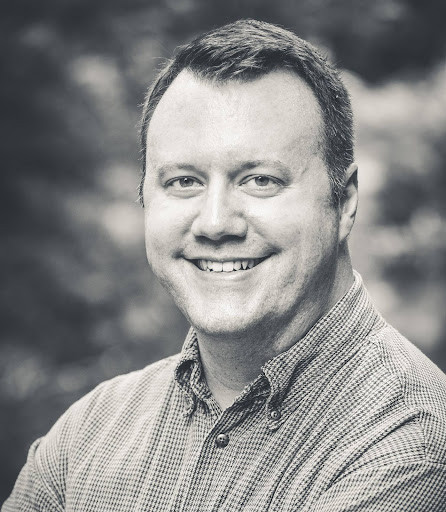A Call for a New Kind of Awakening: David Lindsey's Insights on Empathy, Critical Thinking And Community

"The world is currently in chaos," Lindsey says. "We're more connected than ever, and yet more fragmented. People no longer share the same understanding of facts, much less the same sense of community." What worries Lindsey is not just the size of today's global issues, climate change, displacement, violence, and inequality, but the way communities have become locked in a perpetual conflict, unable to work together across differences.
His conviction comes from personal experience. Growing up in conservative Midwestern and Southern towns, Lindsey learned early what it meant to disagree with the dominant narrative. Reading scripture closely, he came to different conclusions than many of his peers, and he had to learn how to remain in dialogue with those who might not accept him if they knew what he truly believed. "I had to figure out how to be in conversation with people I loved and respected, even when I disagreed with them profoundly," he reflects. "That shaped everything: how I listen, how I speak, how I act."
That belief in dialogue carried him into decades of ministry, interfaith work, and keynote speaking. Today, it forms the heart of his message, where real change only happens when people meet each other where they are. "Whether you're speaking or listening, it has to start with empathy," Lindsey explains. "And this can't be developed automatically; we have to train it. Otherwise, our first impulse can be anger or outrage. The online realm is a clear testament of that."
Technology, he points out, has accelerated both the best and the worst of human connection. On one hand, social media amplifies outrage and fuels echo chambers. On the other hand, it makes it possible to hear voices and perspectives once unreachable. "The person with the solution to a global crisis might be halfway around the world," Lindsey explains. "Technology enables us to hear them. But if we aren't having these intentional conversations, we miss the chance and just end up quarreling with each other."
Part of being intentional, he argues, is pausing before reacting. Lindsey often draws from his own practice of cognitive behavioral therapy, which emphasizes interrupting the automatic rush to judgment.
"Take a deep breath before you respond," he advises. "Ask yourself, did I hear that correctly? Is what I'm about to share true? And if it is true, how can I share it in a way that helps rather than divides?" That brief pause, he believes, is a simple but profound skill that can transform both personal relationships and public discourse.
This balance between empathy and critical thinking is not just a personal habit, but a cultural necessity. Lindsey believes humanity is at a critical evolutionary moment. "Much like in biology, where there are sudden leaps in development, I think we need a leap in empathy and critical thinking now," he says. "The scope of global issues is too vast for any one nation or community to face alone. We have to evolve, and we have to do it together."
His book, Master Public Speaking, reflects this philosophy on a practical level. Recognizing that fear of speaking ranks among the most common anxieties worldwide, Lindsey set out to make communication less overwhelming.
The book lays out a five-step process that breaks the task into small, manageable parts, helping people move past fear and into confident self-expression. "It's the same principle," he explains. "When the scope of something feels overwhelming, you start little by little. Take one piece at a time. That's how we grow, both as speakers and as communities."
For Lindsey, the act of speaking publicly is inseparable from the work of building community. His keynote talks often circle back to this same theme. They're rooted in the necessity of listening deeply, speaking honestly, and widening the space between reaction and response. He often frames it as a spiritual task as much as a social one.
"All of the world's great traditions have some practice of pausing, whether it's prayer, meditation, or simply breathing," he says. "Those practices evolved to help us rise above our most destructive impulses. I think we need another spiritual evolution, one that equips us for the global realities we face."
Ultimately, Lindsey sees hope in the very thing that makes this moment so fraught: one's interconnectedness. "Yes, our divisions are amplified," he admits. "But our capacity to connect is greater than at any point in history. The question is whether we can choose empathy over outrage, dialogue over division. That choice will shape what comes next."
At a time when voices compete for attention and conflict dominates headlines, Lindsey's message cuts through the loud noises with urgency and clarity.
To heal fractured communities and confront global challenges, one does not need more noise; they need more listening, more empathy, and more courage to think critically together. As he puts it, "We can't solve the world's problems alone. But together, with empathy, critical thinking, community, and connection, we just might get somewhere."
© Copyright IBTimes 2025. All rights reserved.





















